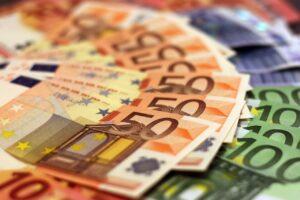Eurozone inflation remains at 2 percent in July
After June, annual inflation in the eurozone was 2 percent in July, according to final data released by Eurostat, the statistical office of the European Union, on Wednesday.
 The eurozone’s consumer price index was 2 percent on an annual basis for the second consecutive month in July, which is in line with the European Central Bank’s (ECB) 2 percent inflation target.
The eurozone’s consumer price index was 2 percent on an annual basis for the second consecutive month in July, which is in line with the European Central Bank’s (ECB) 2 percent inflation target.
Services inflation slowed to 3.2 percent from 3.3 percent in June. Meanwhile, the price increase for food, alcohol and tobacco products accelerated from 3.1 percent in June to 3.3 percent, and the price increase for non-energy industrial products accelerated from 0.5 percent to 0.8 percent in July.
Energy prices fell further: after 2.6 percent in June, the decline was 2.4 percent in July.
Meanwhile, core inflation – which excludes energy, food, alcohol and tobacco – remained unchanged at 2.3%, the lowest level in the euro area since January 2022.
In the European Union, consumer price inflation accelerated to 2.4% in July, year-on-year, from 2.3% in the previous month.
The lowest annual rates were recorded in Cyprus (0.1%), France (0.9%) and Ireland (1.6%). The highest annual rates in July were recorded in Romania (6.6%), Estonia (5.6%) and Slovakia (4.6%).
Compared with June, annual inflation fell in eight EU Member States, stagnated in six and rose in thirteen.
Related news
Markets facing a structural turning point in 2026
🎧 Hallgasd a cikket: Lejátszás Szünet Folytatás Leállítás Nyelv: Auto…
Read more >Related news
Nestlé to sell remaining ice-cream assets but commits to Froneri venture
🎧 Hallgasd a cikket: Lejátszás Szünet Folytatás Leállítás Nyelv: Auto…
Read more >Lidl guarantees fairer prices for cocoa farmers
🎧 Hallgasd a cikket: Lejátszás Szünet Folytatás Leállítás Nyelv: Auto…
Read more >









